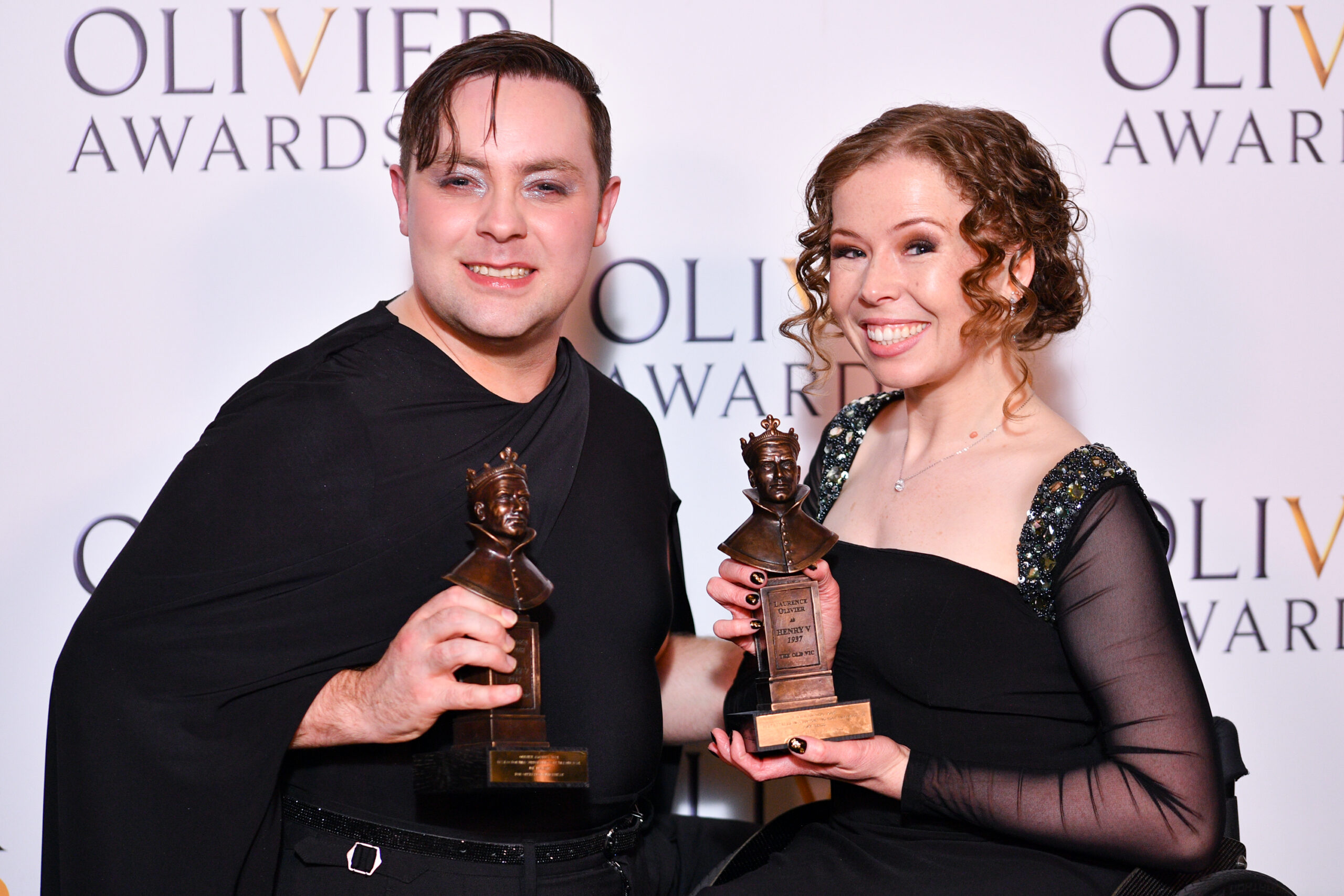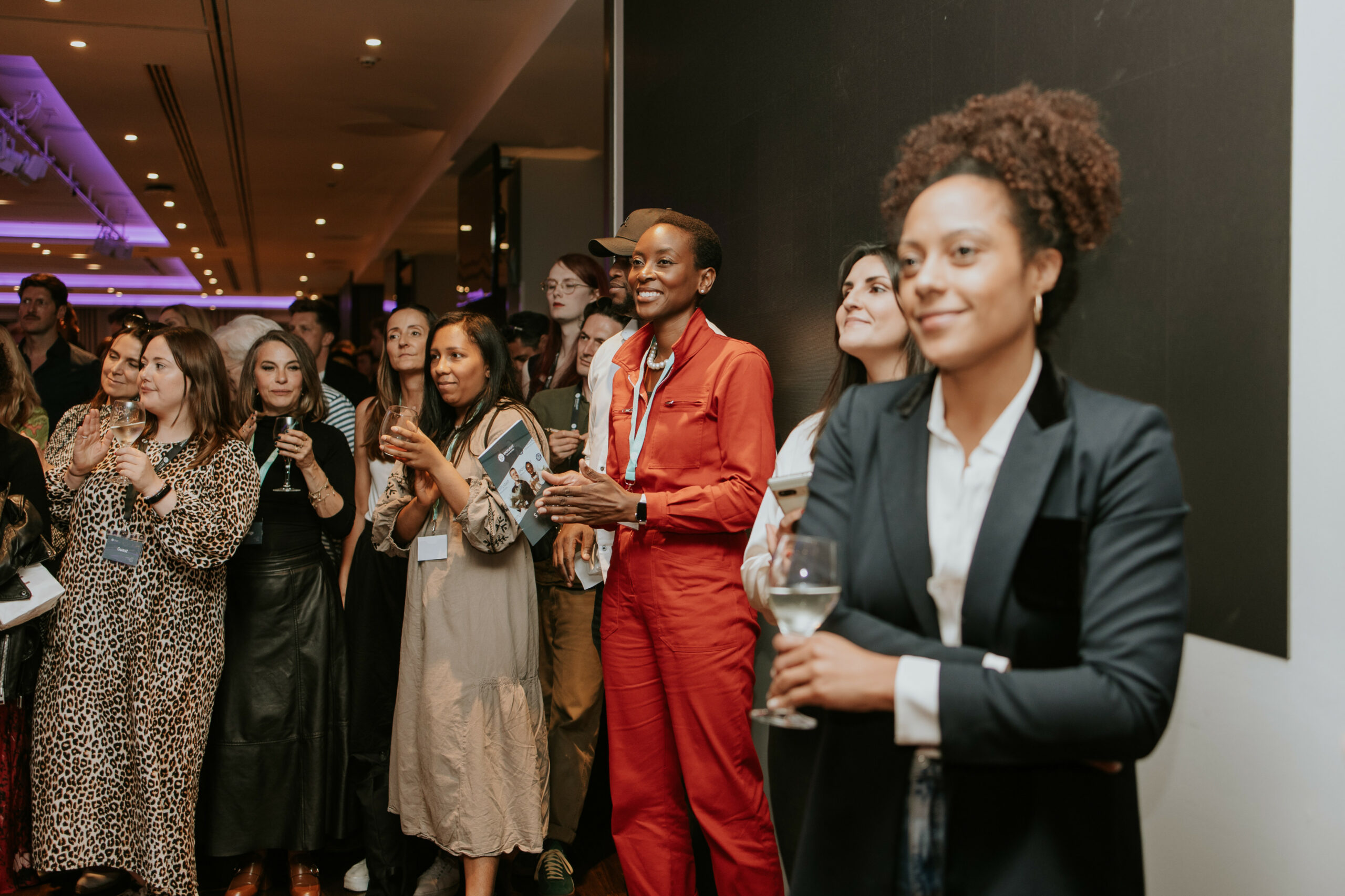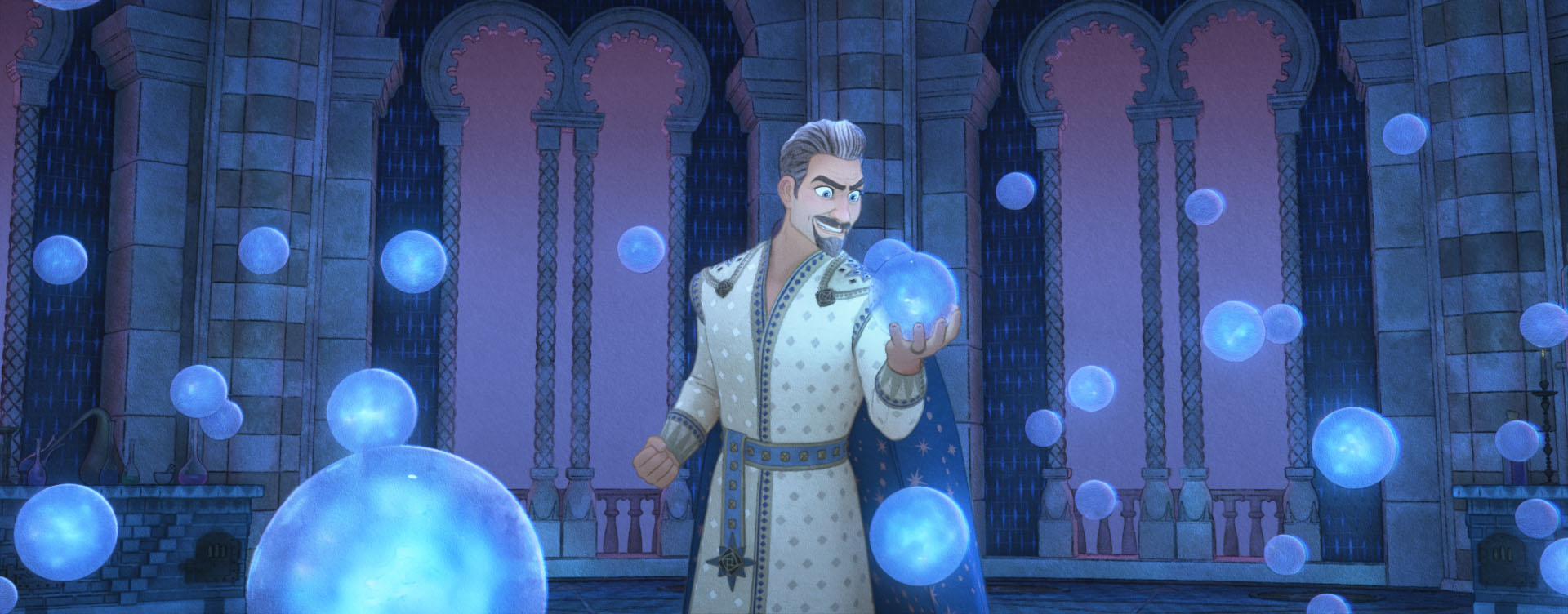We speak to Paul Bazely about his early days as an actor, as well as the powerful mantras and practices that have enabled him to work at the highest level for so long.
While perhaps best known as Troy from hit comedy series Benidorm, Paul Bazely is certainly no stranger to our screens, stages or radios. Over the course of his career — now spanning three delightful decades — we’ve seen him in everything from Pirates of the Caribbean: On Stranger Tides to Star Wars: The Last Jedi, Black Mirror to Doctor Who, East is East at Birmingham Repertory Theatre to Quiz on the West End.
Can you recount the moment that first sparked your desire to become an actor?
Paul Bazely: I remember being in primary school and desperate to be in the school play, but being from a non-arty, immigrant family, I never thought I could actually be an actor. Then in sixth form, my drama teacher (who turned out to be Allan Cubitt — the creator of The Fall) said to me, ‘you could do this as a living’. So after a lot of thought, I went home and told my poor, unsuspecting parents that I was dropping one A-Level because I only needed two to get into drama school, and by the way, I was going to become an actor.
That’s quite the announcement! Did you have a specific plan in mind when you were starting out?
PB: I was hugely inspired by Rik Mayall and Adrian Edmondson (who I’ve been lucky enough to work with twice), so I thought I was going to create my own comedy and have my own show on telly. Once I went to drama school, I realised I wanted to be a more conventional actor and do all kinds of drama as well as comedy. After I had kids, I realised that acting had to fit into my wider family and political life and so couldn’t be my first and foremost priority [anymore].
Your ability to work across film, TV, theatre and radio is hugely impressive. Do you have any practices that enable you to transition from medium to medium so effortlessly?
PB: Partly that is luck. I know many brilliant actors who’ve specialised more than I have purely because those are the chances that came along. For the first decade or so I just said yes to everything that came my way and that led me to do all these various things. I think nowadays I try to keep space for film and TV as well as theatre. I know friends who have gradually developed ‘the fear’ about going on stage, so I try to do a play every two years or so — I also love it, but it does seem to get scarier as the years go by. I think I was lucky that when I had kids I realised that it didn’t feel right to be on the road in touring theatre all the time, so I consciously turned theatre down which created space for film and TV. Personally, I think that the more you do of all different mediums, the higher your confidence to step between the different disciplines. For instance, you could be filming in the day and doing a play on a big stage in the evening. It seems like a big leap but, because you’re match fit, you have the confidence and technique to switch comfortably.
On the topic of confidence, how would you describe your philosophy around auditioning?
PB: My constant mantra is ‘Let me trust that everyone who needs what I have to offer will ALWAYS find me’. I say it before every audition and I say it to myself as often as I need every time I think about an audition that I’ve done. My mantra helps me in the room to remember that we are all human beings trying to make good work. There’s no need to beg or try to ingratiate oneself. Just do your best work and if they need you, they will find you. There’s also no such thing as competition. If it’s right for me, I’ll get it, if it’s not, I won’t. No one else has beaten me or taken from me. This has also helped me over the years to enjoy the success of my so-called ‘rivals’ and consequently deepened my friendships with my fellow actors.
Wow, that sounds like a hugely empowering and enabling approach. On the flip side, do you have a favourite ‘mistake’ or ‘failure’?
PB: I remember in my early career I got offered a fantastic part in an indie film which clashed with a supporting regular in a big new cop show. I lived more in scarcity than abundance in those days, so I took the safe supporting role which promised more money in the long run. As it turned out, the series was never recommissioned and I deeply regretted not taking the more adventurous decision — following my heart to the amazing film role. I ran various scenarios in my head in which that part would have led me to huge screen success. Then, many years later when I was having another stab of regret about it, I worked out that had I not taken the police role, I wouldn’t have changed agents at that particular time, and therefore they wouldn’t have got the stage role at Stephen Joseph Theatre in Scarborough where I met my future wife. The whole episode taught me that we’re always EXACTLY where we need to be at this precise moment. The only useful thing to do is to decide what to do next, not what you should have done yesterday.
That’s so important to keep in mind. How do you define ‘success’ today? Has this definition evolved over the course of your career?
PB: When I was at drama school success meant fame and fortune. I’ve since seen up-close enough of those things to know that they are not what I was after at all. Now success means being able to pay the bills, yes, but much more so, being able to tell stories that help us all to see the humanity in ourselves and each other.
Do you have any go-to self-care or relaxation routines?
PB: I’ve meditated pretty much every day for 30 years which has kept me sane, probably saved me from messing up many relationships including my marriage, and made me a happier and better actor. I try to stay as fit as possible to deal with anything a part throws at me, but also to help my mental wellbeing. I’m a huge fan of Wim Hof and have started sea swimming through the year which has been life-changing. Particularly in helping me realise that a lot of the limitations we put on ourselves are just stories that we like to cling to. I also feel like I need to be trying to affect positive change in the world not just through the stories I tell. So I have trained in Nonviolent Communication (NVC) and try to support Active Nonviolence wherever it is occurring — which is everywhere if you look carefully. Finally, I love my little garden, am obsessed with Restorative Farming as the answer to the world’s problems, and dream of being part of a little small-holding collective one day.
You’ve worked with some big names throughout your career. Is there a particular lesson or piece of advice that’s really stuck with you?
PB: When I was young, two big influences on me were Terence Rigby and Denis Quilley. Not for any one particular piece of advice, but for the way they always conducted themselves and acting with such dignity and a sense of self-worth. They were also both incredibly nurturing of young talent and I’ve tried to remember their examples as I’ve got older. I was also lucky enough to work with Danny Glover who lives a hugely inspiring example of how one can be an actor and an activist at the same time. Two of my other favourite exemplars of this are Mark Rylance and Emma Thompson.
 Tahlia Norrish is an Aussie-Brit actor, writer, and current MPhil Candidate at the University of Queensland’s School of Sport Sciences. After graduating from The Liverpool Institute for Performing Arts (Distinction, Acting and Musical Theatre) and Rose Bruford College (First Class Hons, Acting), Tahlia founded The Actor’s Dojo — a pioneering coaching program centred on actor peak performance and holistic wellbeing.
Tahlia Norrish is an Aussie-Brit actor, writer, and current MPhil Candidate at the University of Queensland’s School of Sport Sciences. After graduating from The Liverpool Institute for Performing Arts (Distinction, Acting and Musical Theatre) and Rose Bruford College (First Class Hons, Acting), Tahlia founded The Actor’s Dojo — a pioneering coaching program centred on actor peak performance and holistic wellbeing.
Headshot credit: Ben Wilkin
Main photo of Paul by ChrisWRCox.












